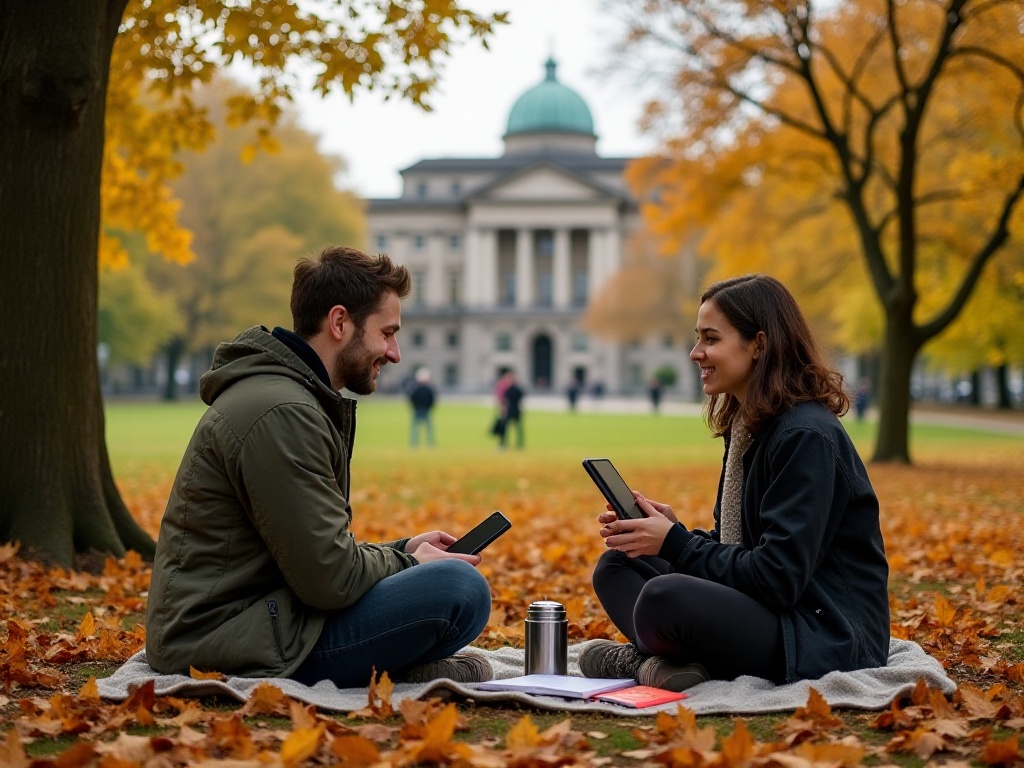
Introduction
"Going to Paris for a month was the best decision I ever made!" This is what I always tell my friends when they ask about my French learning experience. As a travel blogger who has visited over 30 countries, I've tried various language learning methods: language schools, online courses, self-study apps... but nothing compared to the month I spent with a host family in Paris.
At the time, my French level was mediocre. Despite studying for almost two years, I was still stuck at textbook-level conversations. Before meeting Marine, I even thought I might never master French. Who would have thought that in just one month, my French would make such a remarkable leap?
An Unexpected Encounter
It was a summer afternoon last year, with perfect Parisian sunshine and the aroma of coffee and croissants wafting through the air. I was sitting at an outdoor table at a small café on the Champs-Élysées, struggling to explain in broken French to the waiter that I wanted an Americano without sugar.
"Excusez-moi, je voudrais un café américain sans sucre, s'il vous plaît." I remember saying this phrase as awkwardly as if reciting from a textbook.
At that moment, Marine, sitting next to me, turned and repeated my order in perfect French. Her elegant pronunciation immediately made me realize my mistake—I had completely misplaced the stress in "américain."
This interaction started our conversation. Marine was a typical Parisian intellectual, working as an art curator at the Louvre, with a deep interest in art and culture. When she learned that I was a global travel blogger trying to learn French, her eyes lit up.
"Why don't you come stay at my house for a while?" Marine suggested, "I have a spare guest room, and my two children have been wanting to practice their English. We could learn from each other."
The offer came unexpectedly, but internally I was screaming "YES." After a brief discussion, we agreed that I would move in with her family the following month.
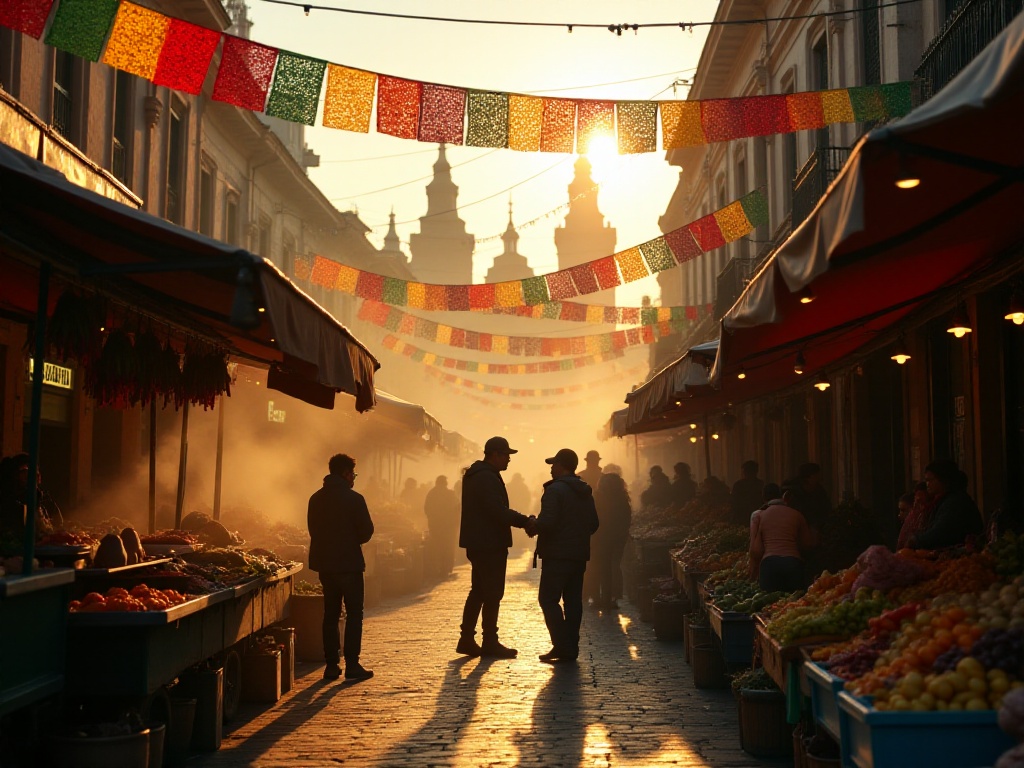
Immersive Experience
Life at Marine's home completely transformed my understanding of language learning. It turned out that learning a language could be this natural and enjoyable.
Every morning at 7 AM, I would wake up to the aromas wafting up from downstairs. That was Marine preparing family breakfast: freshly baked croissants, aromatic coffee, and various delicious jams. Breakfast was the liveliest time of day, with Marine's two children, 15-year-old Lucas and 12-year-old Sophie, chattering about their dreams and plans. And I, in this atmosphere, gradually learned to express various daily life details in French.
In the mornings, I often accompanied Marine to various Parisian markets. From Montmartre's farmers market to the Bastille flea market, each market was a living French textbook. I remember once at a cheese stall, I learned the names and characteristics of over a dozen types of cheese. The elderly cheese vendor, seeing my interest in cheese, even gave me a special lesson on different cheese-making techniques and tasting methods.
At lunch, we often dined with Marine's colleagues or friends. French lunch is never just about filling your stomach—it's a social activity. In these settings, I learned how to politely interject, express opinions, and even joke in French. During the first few days, I was too nervous to speak, but gradually, I found myself naturally joining their conversations.
In the afternoons, I often accompanied Sophie to her ballet classes. While waiting, I would chat with other parents. Through these daily conversations, I learned numerous practical vocabulary words and expressions used in everyday life. Sometimes, we would discuss specialized topics like art, education, or current events. These topics greatly expanded my French vocabulary.
The evenings were even more exciting. Marine's husband Pierre was a food enthusiast who often experimented with various French dishes in the kitchen. I would help out, learning cooking techniques while memorizing the French names for ingredients and kitchen utensils. After dinner, the whole family would watch French TV programs, from news to variety shows, from documentaries to movies—these media resources greatly improved my listening comprehension.
Weekends were especially wonderful. Marine would take the whole family on outings or to various cultural activities. Once, we went to the Palace of Versailles, where Marine not only explained the palace's history in detail but also taught me many specialized terms about French history and art.
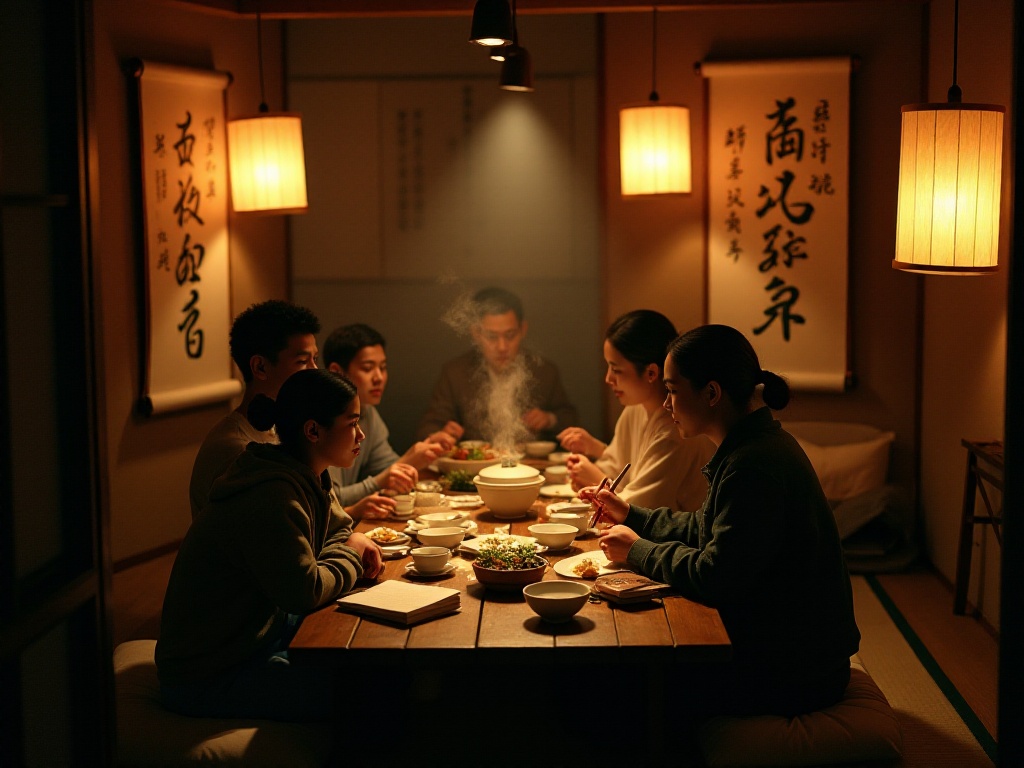
Cultural Codes
Living with Marine's family wasn't just about language learning—it was a journey into understanding French culture deeply.
What impressed me most was the French culture of addressing people. On my third day at Marine's house, her parents came to visit. I warmly greeted them using "Tu," only to find the atmosphere became awkward. Later, Marine told me that in France, you must use "Vous" with elders or unfamiliar people to show respect. This lesson helped me deeply understand the cultural implications embedded in language.
The French art of living also opened my eyes. Every dinner, Marine would carefully plate the food, making even simple home cooking aesthetically pleasing. She told me this wasn't just etiquette, but respect for life. Through these details, I learned to express aesthetics and taste in French.
In interactions with family and friends, I also discovered that French people particularly value the art of debate. At every family gathering, everyone would engage in heated discussions about various topics. Initially, I worried my French wasn't good enough to participate. But Marine encouraged me, saying, "In France, what matters isn't whether you're right or wrong, but whether you have your own perspective." This helped me let go of my language inhibitions and start expressing my thoughts bravely.
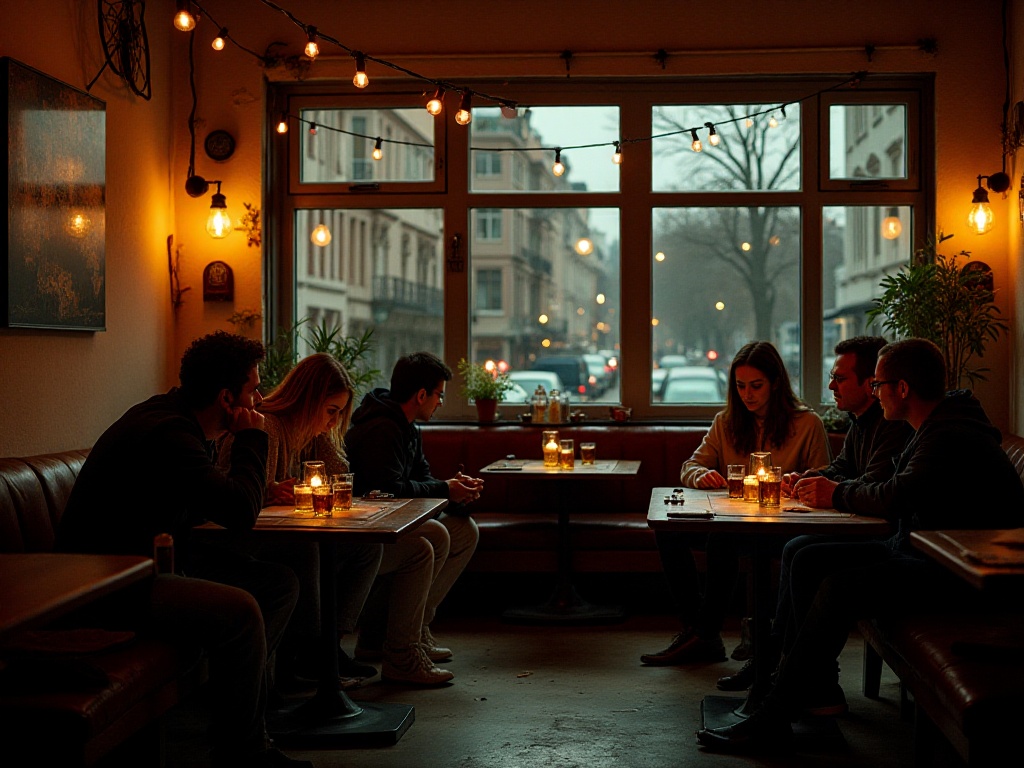
Practical Insights
This month-long homestay experience completely changed my French learning method.
First, I created a "life vocabulary notebook." Every day, I would record new words and expressions encountered in daily life. This included cooking terms learned in the kitchen, daily conversations overheard in the park, and slang from TV shows. These words stuck better in memory because they were connected to specific scenes and emotions.
Second, I developed a habit of keeping a "question list." Every evening, I would compile the language puzzles I encountered that day and ask Marine about them the next day. Whether it was a grammar phenomenon or the usage of slang, Marine always gave detailed explanations.
More importantly, I learned to think in French. Initially, I would organize my thoughts in English or Chinese and then translate them into French. But around the third week, I found myself thinking directly in French. This was a magical turning point, after which my French became more natural and fluent.
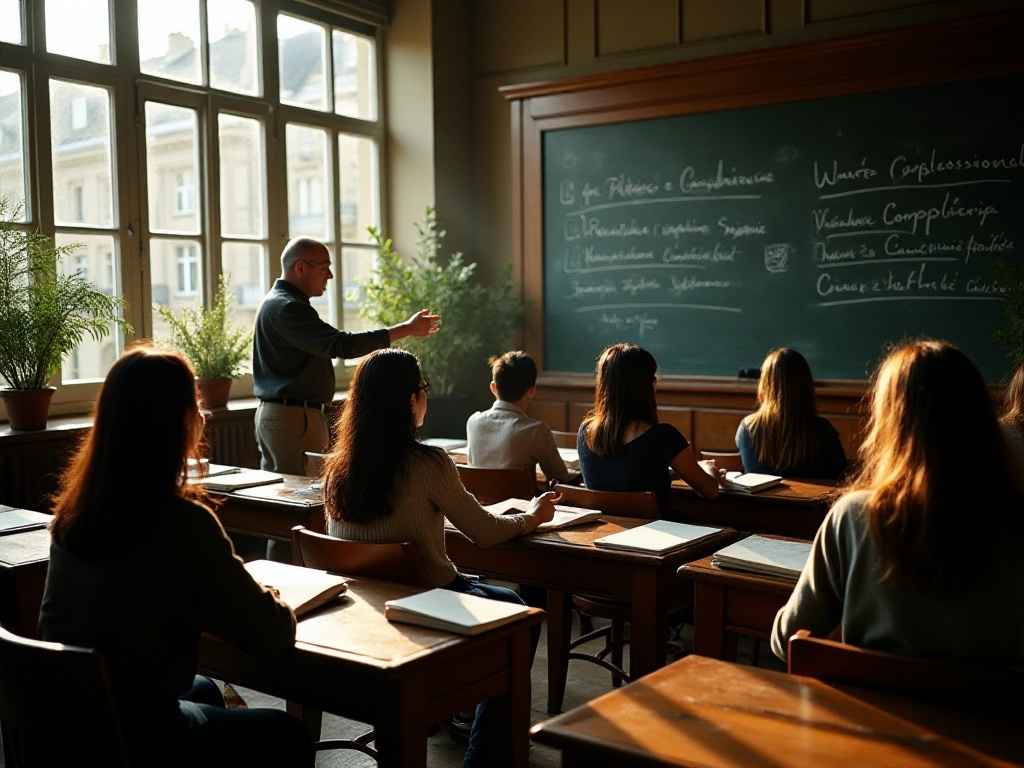
Data Support
My progress was tangible. Through daily learning logs, I clearly saw my improvement trajectory.
In terms of vocabulary, I increased from around 800 words to over 3,000. Most of these newly mastered words came from daily life scenarios and were highly practical. For instance, I can now accurately describe various ingredients, furniture, emotional states, and even some specialized vocabulary.
The improvement in oral fluency was even more significant. I used my phone's recording function to track my speaking status each week. In the first week, I had to pause several times to say a simple sentence, and my speech was slow. By the fourth week, I could engage in 15-20 minute conversations fluently, and my speaking speed had nearly doubled.
Listening comprehension also made a qualitative leap. In the first week, I mostly guessed at French TV programs. By the last week, I could understand over 80% of the content and even detect subtle differences in accents.
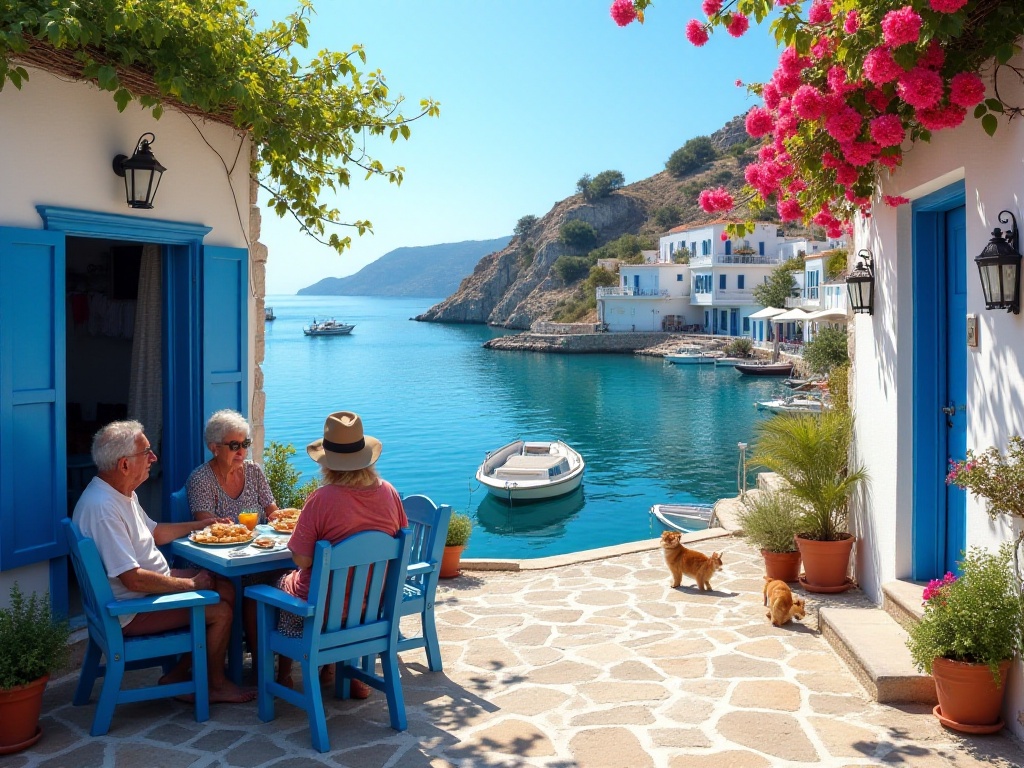
Reflective Thoughts
This experience gave me a new perspective on language learning. Language isn't just knowledge points in textbooks but a living tool for communication. Real language learning should happen in authentic life situations.
During my month with Marine's family, I not only learned French but also learned to think and live in the French way. I understood why French people always gesture while speaking, why their intonation has a unique rhythm, and why certain situations require specific expressions.
While this learning method requires significant investment, the rewards are richest. It not only rapidly improves language skills but also helps you truly understand a country's culture and way of life.
If you're also learning a foreign language, I strongly recommend trying this type of deep travel. It doesn't have to be a month—even a week can be beneficial. As long as you truly integrate into local life, you'll discover that language learning can be so natural and interesting.
Language learning is a long journey, but choosing the right method can make the process full of joy and rewards. Like my month in Paris, I not only improved my language abilities but also made lifelong friends—these are the most precious treasures.
So here's a question: Which country would you most like to visit for a language and cultural journey? Would you like to experience passionate flamenco in Spain, taste authentic cuisine in Italy, or experience unique Japanese lifestyle in Japan?
Next
Learning Languages in Foreign Lands: An Immersive Experience Shared by a Travel Blogger
Explore the dynamic relationship between travel and language learning, examining how immersion enhances language skills and how linguistic abilities deepen travel experiences through cultural engagement and authentic interactions
One Person's Language Journey: Measuring the World with Footsteps, Making Travel the Best Language Classroom
Explore effective methods and benefits of learning languages through travel, combining immersive strategies with practical approaches, supported by digital tools and structured resources for enhanced language acquisition and personal growth
One Person's Language Learning Journey: My 90-Day Immersion Experience in a Rural Japanese Town
Explore how travel facilitates language learning through immersive environments, covering natural and structured learning methods, along with guidance on choosing suitable language programs and courses to enhance language skills while traveling
Next

Learning Languages in Foreign Lands: An Immersive Experience Shared by a Travel Blogger
Explore the dynamic relationship between travel and language learning, examining how immersion enhances language skills and how linguistic abilities deepen travel experiences through cultural engagement and authentic interactions
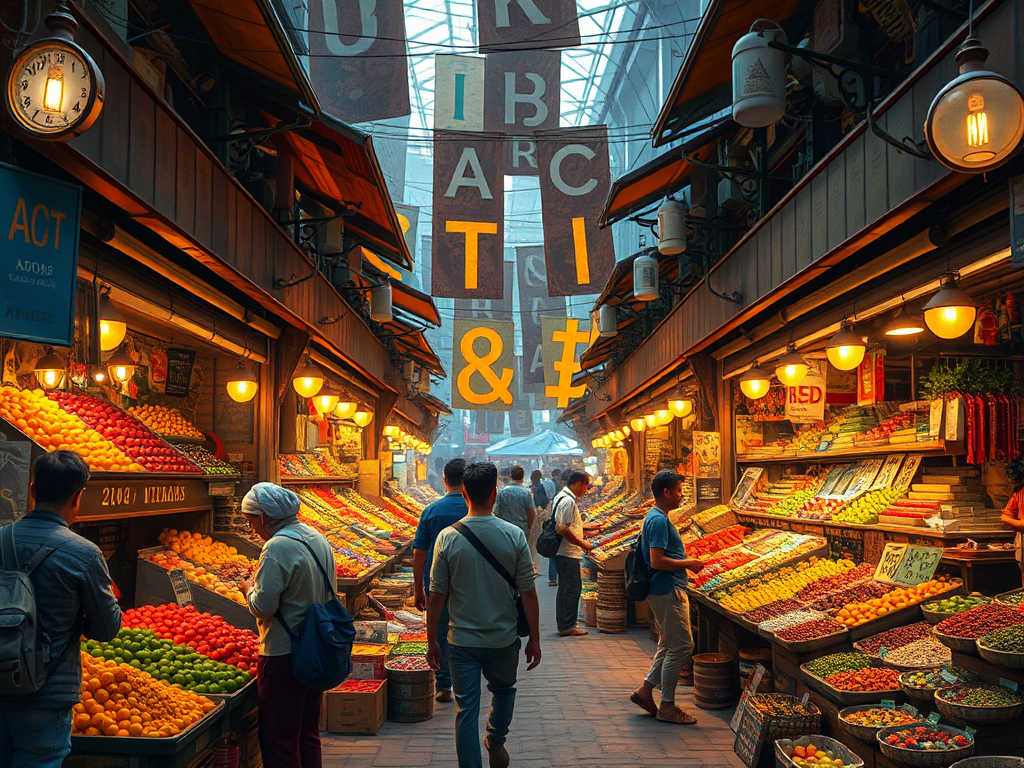
One Person's Language Journey: Measuring the World with Footsteps, Making Travel the Best Language Classroom
Explore effective methods and benefits of learning languages through travel, combining immersive strategies with practical approaches, supported by digital tools and structured resources for enhanced language acquisition and personal growth

One Person's Language Learning Journey: My 90-Day Immersion Experience in a Rural Japanese Town
Explore how travel facilitates language learning through immersive environments, covering natural and structured learning methods, along with guidance on choosing suitable language programs and courses to enhance language skills while traveling



